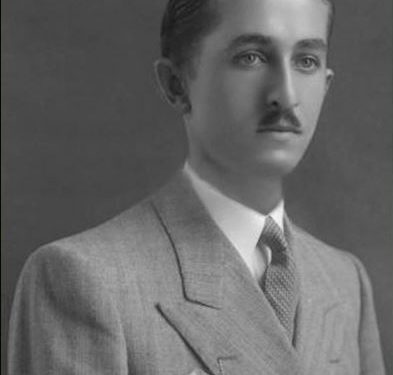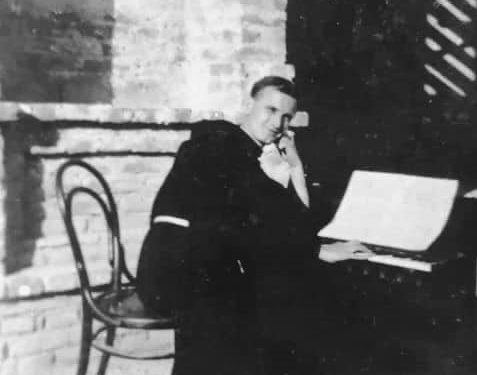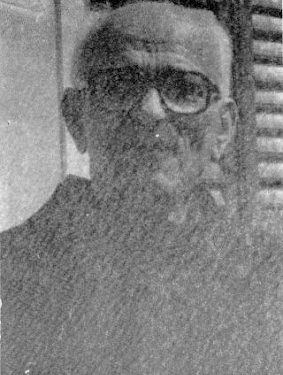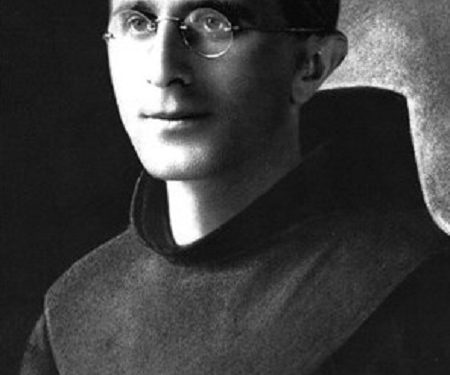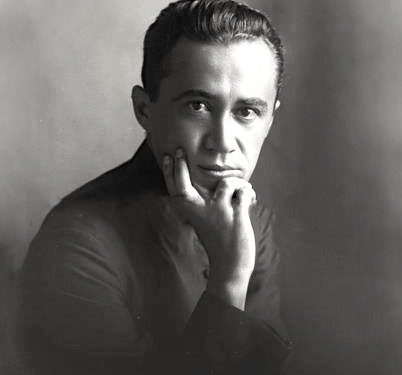From Veli Haklaj
Part four
PERSECUTION OF THE CATHOLIC CLERGY – STATE SECURITY QUESTIONS IN 1946
Memorie.al / In the history of the Albanian nation, the Catholic Church has played an important and often precious role. Unfortunately, the relationship that the communist government built in Albania, with the faith as a whole, resulted in an unprecedented wave of repression against clerics of all faiths in our country, especially against the spiritual leaders of the Catholic faithful. According to the determination made by Monsignor Rrok Mirdita: “Regardless of the gigantic strength with which the church has carried the weight of the national culture, regardless of the unbearable light it has cast on the shadows of our old and new history, regardless of the spirit of sacrifice that has accompanied her life in our country, even for these very reasons, many attacks have been launched against the Catholic Church in Albania, and one of the most terrible was the communist one, which together with the process of physical disappearance of the most vocal Catholics, staged the process of distortion of history, on the relations of the Catholic Church with Albania”.
Continues from last issue
Minutes of the questioning of Father Filip Mazrrek
On November 11, 1946, in the State Security Section, in Shkodër, first captain Nesti Kopali interrogated Father Filip Mazreku, 33 years old, son of Pjetri and Marie, born in Thessaloniki and resident in Shkodër, by profession priest, who had graduated from university of music, unmarried, never convicted, who declared:
I was arrested on September 28, 1946, by the People’s Protection bodies, on the charge that I showed reactionary activity. This is somewhat true, because I was dissatisfied with the government, not only because one of my brothers was executed by the partisans, but also because all the Catholic priests were hostile to this government.
I came to Shkodër from Greece since 1915, with my whole family. I am originally from Kosovar, but in Thessaloniki my father was a clerk. In Shkodër we have uncle. Four brothers received the Military Branch, among whom two were captains in the army and two others, quaestary officers. The latter are in prison sentenced to 20 years each, while one of the former was executed by the partisans, on the occasion of the liberation of Tirana.
I have always stayed in Shkodër, except for 4 years when I went abroad with studies. My education at school was pro-German, like many of the professors; I had such great sympathy for Germany. In 1937, I completed my studies and came to the Assembly, as director of the “Scola Contrusa” (music group).
The arrival of Italy was expected by some, like Father Gjon Shllaku and others, 6 months ago, while some of us found out on Friday, when we saw the Italian airplanes flying around. This day we had gone out to the yard. On this occasion, Father Anton Harapi, Father Pal Dodaj, Archbishop Thaçi himself, with his car, went to the Buna Bridge, to welcome and bless the Italians. Besides these, the prefect and some other authorities have received the Italians with honors, while the people have stayed away.
Then Archbishop Monsignor Prenushi, Friar of Mirdita, Frano Gjini, Bishop of Zadrima, Volaj, Father Çiprian Nika – Rector of the Jesuits, Father Pal Dodaj, Father Mati Prenushi, etc., went once to the prefecture and then to the Luotenency (Tirana) for welcome Italian authorities.
Father Pal Dodaj, Father Anton Harapi and Father Çiprian Nika, have had close relations with Meloni since before the arrival of Italy. They had brought Melon many times to the Assembly, and even he has appeared in photographs with friars. Jacomon was only among the Jesuits, and I believe he had political relations with them.
Since the arrival of Italy, Father Ivshi Rroli, Father Antonin Fishta, Father Doord Pici, Father Viktor Volaj and recently Father Pal Dodaj have been in the Provincial Secretariat. They had the entire secretariat and every letter that went in and out was controlled by them.
I do not know the figures on the subsidies we received from Italy, I only know that these were given to the Catholic Clergy of Shkodra, for propaganda purposes. By virtue of this agreement, between our heads with Rome, all our policy and work, tended to that of Italy.
So not only Italian was spoken in our schools, this language was taught, the system of the fascist regime, the works of the people, etc. were praised, but conditions were created, which attracted the people (religious societies) and by means of small propaganda, etc. , sympathy for Italy prevailed throughout our area.
We received the books before the arrival of Italy at the consulate here. With the arrival of Italy, we no longer received books, but coins. These were received by Father Agostin Ashiku, Lec Harapi (employee of the consulate). We also received Masses in Italy, then help for the priests, for parishioners, for gymnasiums, etc. Father Pal Dodaj, Father Mati Prenushi and Father Çiprian Nika have repeatedly attracted these.
Religious societies have been established here in Shkodër since 1933. These were founded to gather the youth close to them, because at that time, Mirash Ivanaj (Minister of Education) closed our schools. The initiative of their creation was taken by Father Frano Kiri (in terms of the friars – “Antonians”), then others were created among the Jesuits, such as that of “Don Bosco”, etc. These societies have been involved in politics since 1942.
To participate in politics, members of the church were prohibited by religion, but later this order was removed and all members were left free to act as they wished. At the same time, many leaders of the Assembly, such as Father Gjon Shllaku, Father Anton Harapi, etc., not only cooperated openly with the occupiers, but went on the offensive against the National Liberation War.
I remember that a year before the liberation, Father Gjerai, ordered by Father Antoni, went to Prekal and Koplik, to raise the people against the Movement. He has held a meeting of leaders and spoke to them. A certain Pjeter Gjoka was also with him. Then other clerics followed this. Many of them, such as Father Lek Luli, Dom Lazer Shantoja, and others I mentioned, were active even before.
It was the issue that our interests were closely connected with all other leaders, as well as with those of the occupier, so we definitely had to protect them. For this, we join “Balli” and in the district of “Sh’Profet”, a branch of this organization is established, under the leadership of Dom Zef Shestan. This has distributed tracts and has greatly helped the Catholic youth to break away from the Movement.
While the rest of us, we have made the people of the Catholic sector participate very little, if not at all, in the Movement. About our attitude towards different parties, the parishioners once asked Father Anton in the Assembly, but he answered them; “how can they think of it”.
For this very thing, all the leaders of the Clergy in the Archbishopric (the Rector of the Jesuits, the Provincial, etc.) gathered once before the liberation, but they also reached the same conclusion and left it to the clerical each one to work according to the possibilities that ‘presented.
At the time Mark Gjonmarkaj came here, Father Dioniz Maka and Father Dod Pepa, they came from Dukagjini with 300-400 highlanders to Shkodër, to fight against the National- Liberator Movement, however, since the work was destroyed, the highlanders fled and left them.
The superiors of these two vicars did not tell you anything, it seems they liked it. At this time, Father Antoni with the other leaders of Shkodra, held meetings in Kino – “Rozafat” and elsewhere and tried to create an army; all merchants and rich people were advised to give money for keeping volunteers, but the work did not last and nothing was done in this direction either.
With the liberation, we continued to remain isolated for a while, but then we opened up again, considering this government as communist and, for every occasion, we declared ourselves with disgruntled elements and anti-government organizations. I myself have been a little familiar with the persecution of the brothers, so I have often opened slogans. Once I heard from Father Gjon Shllaku, who had come from Tirana, that the English are giving money to make the people their own, and I spread these slogans abroad. I have often asked to cooperate with Father Gjon, but since I was dealing with children, he was afraid that I wouldn’t escape a word and he wouldn’t open up to me.
Around November 28, 1945, Zef Mirdita once attended my high school. He let me know that tracts would be distributed that night. He didn’t tell me directly, because there were other children there. During this time, Captain Riza Kuçi came to me twice in a row and asked to bring him in connection with the illegals, especially with Llesh Marash, but I told him that I can’t with Llesh, yes with Pashuk Biba.
I could connect him with Pashuku because a certain Pjeter Preçi came to me from Puka, with whom I have always been in touch, but in August 1945, he came to me one day at the church of Berisha (since I was a parish priest there) and I propose to go with him. He wanted to introduce me to Pashuk Biba and for me to become illegal too. But I could not escape. One day Pjeter Preçi asked me for a pair of military trousers, I promised him and he ran away.
After four or five days, he came again with a letter from Pashuk Biba and four napoleons of gold. These were sent by Pashuku so that I could find him a pair of military clothes and one for me. I got scared and didn’t hold back. On this same date, a brother of Pjetër Preç, who was a soldier in Shkodër, came to the cell and told me that the soldiers are demoralized. I have spread this slogan. I have also opened slogans that; Chun Jonuzi will desert with four other officers.
I stayed in Berisha for two months and then I went down to the city again. When I came to Shkodër, Fausti, Dajani, etc. had been arrested and executed. One day, a child (Gjon Kapedani), who lives in Papavram’s house, sends me a letter. The letter was in letters and Dajani described to me how they lived in prison. The letter is still with Father Donat Kurti, to whom I gave it for safekeeping, when I moved to Hot.
I have told Father Donat Kurti all the issues that have happened to me, such as that of Riza Kuçi, etc. He was happy for me to cooperate against the government, but considering me as smaller, he did not cooperate with me. He may have collaborated with his older friends.
When I returned from Puke, I stayed here in Shkodër, for almost six months, and then I went to Lezhë in the Catholic parish of that city. From there, I went out several times in the villages to visit, such as on the island of Lezha, on the mountain of Rrenci, Berdica.
For the sermons I gave on the Island of Lezha, I was summoned to Lezha by the authorities and I was reprimanded. In this sermon, I spoke about the help of Christians, about religion, etc., one of the Front spoke after me and he shot my sermon. I seem to misunderstand, as if I instigated the division between Christians and Muslims. Memorie.al
The next issue follows




